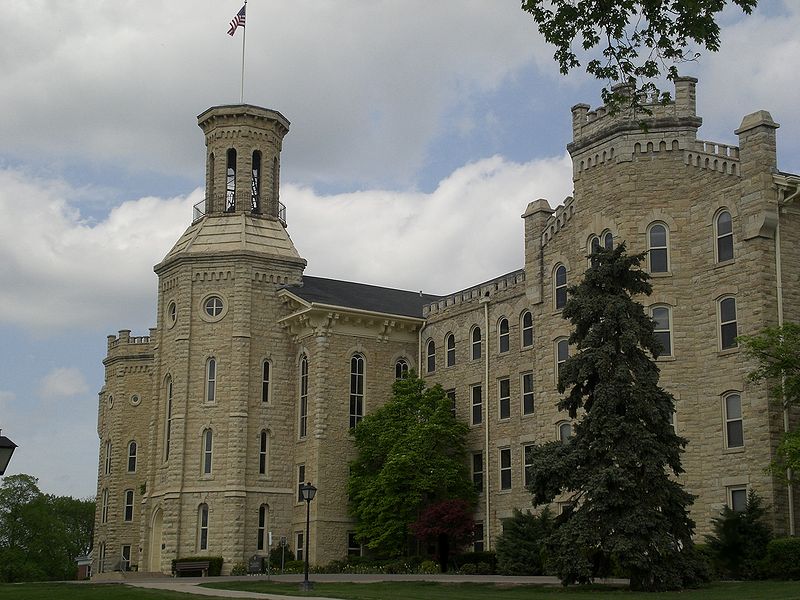 WHEATON, Ill. — Officials at Wheaton College, who have been in headlines in recent months surrounding controversy over a professor who claimed that Christians and Muslims worship the same God, are now denying that they sought the resignation of a former lesbian employee who says she was forced out over her views that it is “good” to identify as homosexual.
WHEATON, Ill. — Officials at Wheaton College, who have been in headlines in recent months surrounding controversy over a professor who claimed that Christians and Muslims worship the same God, are now denying that they sought the resignation of a former lesbian employee who says she was forced out over her views that it is “good” to identify as homosexual.
As previously reported, the Wheaton group “Refuge” was formed to provide “a biblically faithful community” for students who believe they are homosexual, and was approved by administration in 2013.
Refuge was founded by Justin Massey, an openly homosexual political science student who, according to reports, desired to also lay the groundwork for a “gay-straight alliance club” at Wheaton. Massey describes himself as a “gay Christian” and says his sexual identity is not only compatible with his faith, but “absolutely critical.”
In mid-2014, about a year after Massey formed the group, Wheaton administrators reorganized Refuge from a student-led organization to a staff-led community club. Dr. Paul Chelsen, Vice President for Student Development at Wheaton, told Christian News Network that Refuge was originally intended to be “a supportive community that holds to the biblical perspective on sexuality outlined in our Community Covenant.”
Following the re-organization of the group, Wheaton Chaplain’s Office hired blogger Julie Rodgers, who identifies herself as a “celibate gay Christian,” to lead Refuge as student counselor.
Wheaton President Philip Ryken, formerly the pastor of Tenth Presbyterian Church in Philadelphia, however, told World Magazine that students and faculty must “be clear that they do not advocate homosexual practice or find their identity in their sexuality.”
“Same-sex orientation is not good in and of itself, but is part of the brokenness of a fallen world,” he said.
In an article written for Time Magazine on Tuesday, Rodgers stated that she and Ryken–as well as Wheaton Provost Stan Jones—clashed on this subject.
“Even though they had known I referred to myself as ‘gay’ prior to hiring me, they encouraged me not to refer to myself as gay any longer,” she wrote. “They asked me to say I was simply a Christian who experienced same-sex attraction, one who was open to the Lord healing me in ways that could lead to a holy marriage with a man.”
“The problem was that I didn’t think I needed to be healed—I had been clear about that before I was hired. I had finally come to believe it was good to be gay, that God actually delights in those of us who are gay.” Rodgers continued. “Wheaton’s administration had always pushed back against my attempt to create a positive narrative around being gay rather than one of ‘brokenness’ and the need for healing.”
She said that she sought to work out matters with the school and, for fear of losing her job, withheld an article she had written for Christianity Today portraying homosexuality in a positive light and urging “the Church to celebrate the presence of LGBT people.” But she allegedly was called into Ryken’s office in January 2015, at which time her resignation was suggested.
“If they couldn’t support someone committed to celibacy—someone who abided by their Community Covenant alongside every straight employee—I could only conclude that their anxiety wasn’t about my sex life. Their anxiety was about my existence,” Rodgers wrote.
Therefore, she explained, “I resigned from Wheaton during the summer of 2015 and began publicly advocating for same-sex marriage in the church.”
Now, Wheaton is denying that Rodgers was ever asked to resign, and says that officials were surprised that she decided to leave.
“Early in her time at Wheaton, it became clear that Ms. Rodgers did not fully realize the extent to which some conflated her public statements and the college’s views. For that reason, college administrators encouraged her to learn the college community so that she would understand the impact of her writing, speaking and social media activity,” Wheaton wrote in a statement in response to Rodger’s Time Magazine article.
“They asked that in referring to herself as gay, Ms. Rodgers also be clear about her moral commitments related to the Community Covenant,” it clarified.
The school said that Rodgers’ decision to leave Wheaton was completely voluntary.
“Ms. Rodgers’ resignation came as a surprise to President Ryken and to the college community generally,” the statement continued. “She was not asked, encouraged, or pressured to resign. Her communication of her resignation followed the publication of a blog post that announced a significant change in her views on integrating Christian beliefs and same-sex issues.”
Become a Christian News Network Supporter...


